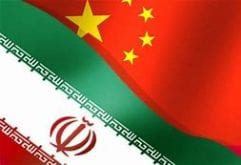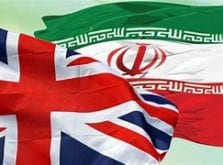VOA – The United Nations atomic watchdog says Iran for a second time this year has exceeded a so-called “soft limit” on sensitive material that was agreed upon under its 2015 nuclear agreement with six world powers.
In a report released Wednesday, a day after Republican candidate Donald Trump won the U.S. presidential election, the International Atomic Energy Agency (IAEA) said Tehran had again surpassed the 130-metric-ton threshold for heavy water since the deal was put in place in January.
Heavy water is used to cool reactors, which can produce substantial amounts of plutonium, an element that is used in producing the fissile core of nuclear warheads.
The watchdog said Tehran had stockpiled 130.1 tons of the material, which is used at reactors such as ones at Iran’s unfinished facility at Arak.
U.S. State Department spokesman Mark Toner said during a regular news briefing Wednesday that Iran was taking steps to export the excess heavy water.
“It’s important to note that Iran made no effort to hide this, hide what it was doing from the IAEA,” Toner said.
Wednesday’s report said the agency verified the overage on Tuesday, nearly a week after IAEA chief Yukiya Amano “expressed concerns” to top Iranian officials.
When Iran exceeded the mark in February, with 130.9 metric tons of heavy water, there was no major criticism from the world powers — the U.S., China, Russia, Britain, France and Germany — that signed the nuclear deal with Tehran. The pact required Iran to curtail its nuclear program for relief from international sanctions.
But there are questions about whether there would be the same reaction from the incoming administration of Trump, who has called the accord a “bad deal” and vowed to renegotiate it.
The IAEA said Iran told the agency it is preparing to transfer five tons of heavy water out of the country in the coming days as provided for in the nuclear agreement.
Wednesday’s report did not note to which country or countries the excess heavy water would be sent. In February, some of the excess heavy water was sent to the United States.
 Shabtabnews In this dark night, I have lost my way – Arise from a corner, oh you the star of guidance.
Shabtabnews In this dark night, I have lost my way – Arise from a corner, oh you the star of guidance.


